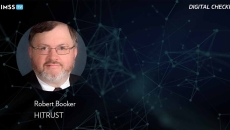Privacy & Security
The FBI and CISA say a significant percentage of foreign threat actors associated with the government of Iran are targeting several U.S. sectors, including healthcare and local governments, to obtain network access and deploy ransomware.
The qualified health information network says athenahealth, ModuleMD and Solace Health have gone live on its TEFCA platform, which features Carequality access, new security capabilities and more streamlined workflows.
Robert Booker, chief strategy officer at HITRUST, discusses its new AI Risk Management Assessment, and how it can help offer assurance for healthcare organizations using artificial intelligence.
The American Hospital Association is applauding the Office for Civil Rights for opting not to appeal a district court decision that vacated its recent rule regulating online tracking technologies.
Integrating partnerships and promoting workforce development in the communities CareFirst BlueCross BlueShield serves is helping address the social drivers that affect health outcomes, says President and CEO Brian Pieninck.
The Advanced Research Projects Agency for Health says new funding to advance capabilities that detect and auto-correct misalignments with training data could help users of medical devices integrated with artificial intelligence ensure peak performance.
SPONSORED
Protect your organization against data exposure from discarded devices.
Imprivata engineering chief Joel Burleson-Davis discusses new IAM strategies, including a potential future without passwords.
Carers ACT has recently transitioned to passwordless access to digital devices.










